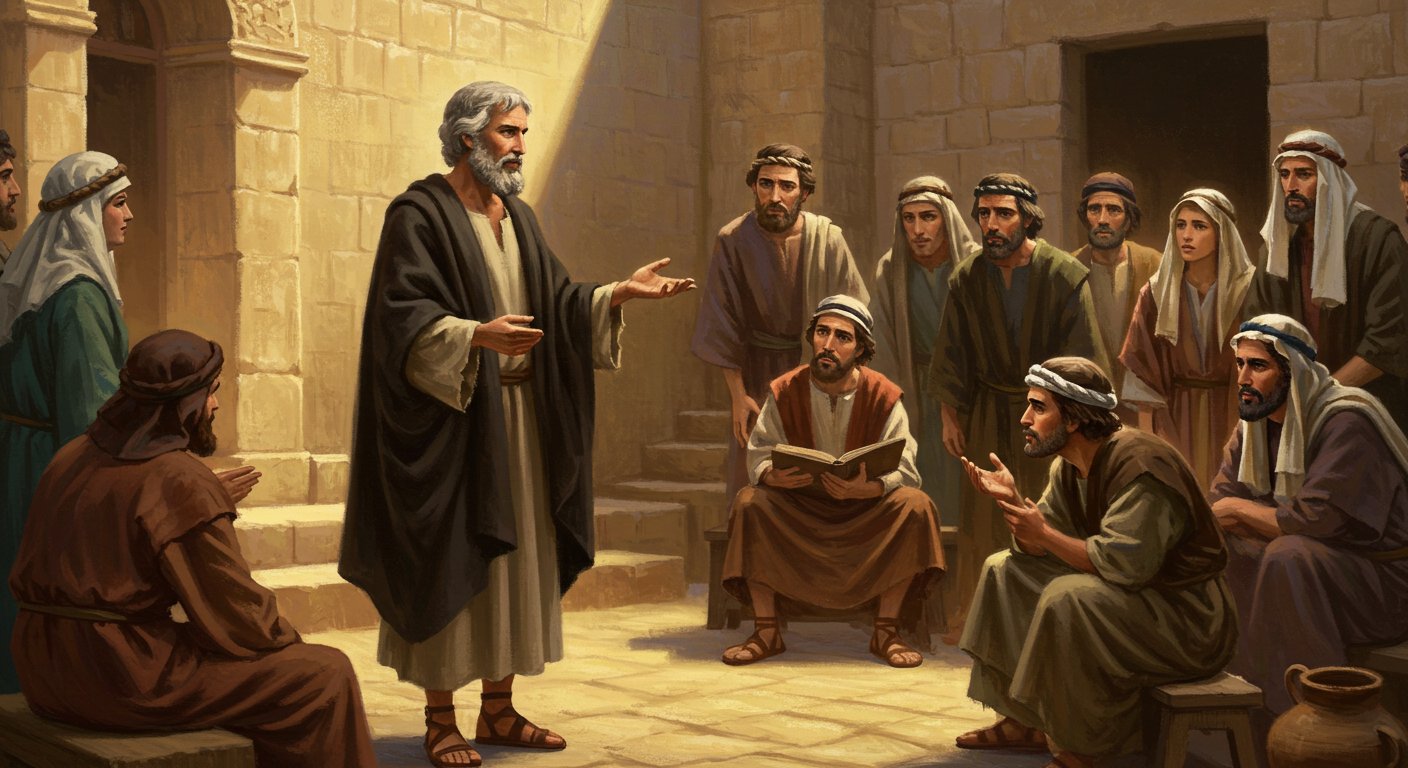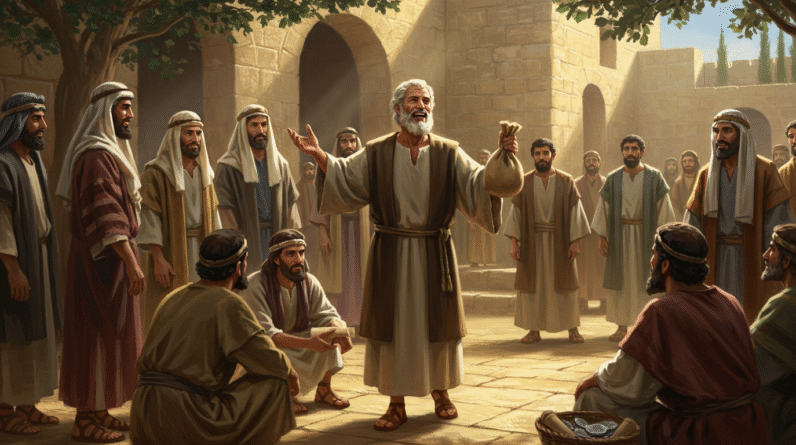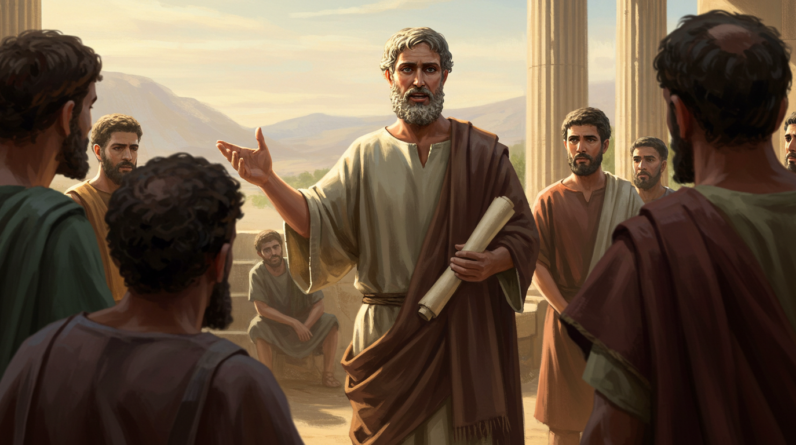Explore the pivotal role of James, brother of Jesus, in early Christianity. Uncover his leadership, influence, and teachings that shaped the nascent church.
James, Brother of Jesus: Unveiling His Leadership and Influence in Early Christianity
When you dive into the intriguing narrative of early Christianity, it’s impossible to overlook the pivotal role played by James, the brother of Jesus. Often overshadowed by the luminous accounts of apostles like Peter and Paul, James was nonetheless a cornerstone in the nascent church, shaping its doctrine and direction with a steady hand and resolute faith. His influence was not just a footnote in the New Testament but a crucial aspect of its unfolding story. A key verse that encapsulates his contribution can be found in Acts 15:13, where James, with wisdom and authority, addresses the early church council, guiding them in pivotal decisions.
Background and Calling
James hailed from a humble beginning in Nazareth, a small village in ancient Israel. Unlike his more famous brother, Jesus, James’s early life isn’t extensively chronicled in the scriptures. Growing up in a typical Jewish household, James was likely steeped in the traditions and teachings of Judaism. Initially, despite living under the same roof as Jesus, the Gospels suggest that James and his siblings were skeptical about Jesus’s messianic claims. It wasn’t until after the resurrection that James encountered Christ in a transformative experience (1 Corinthians 15:7), leading to his pivotal role in the early church. This encounter wasn’t just a familial reunion; it was a divine calling that illuminated his path to leadership and gave him a unique perspective on Christ’s ministry.
Leadership in the Early Church
James emerged as a formidable leader in the early Christian community in Jerusalem. His leadership extended beyond mere administration; he was a key figure in maintaining the integrity and unity of the fledgling church. James’s role was not limited to pastoring; he was instrumental in church planting, establishing a blueprint for Christian communities that balanced Jewish traditions with the burgeoning new faith. His influence was evident at the Council of Jerusalem, a seminal moment in the early church where he mediated heated debates about Gentile conversions with grace and wisdom (Acts 15:19-20). This ability to resolve disputes and guide doctrinal development underscored his vital role in shaping early Christianity’s structure.
Evangelism and Missionary Work
While James may not have embarked on extensive missionary journeys like Paul, his influence was profound in spreading the gospel through his teachings and writings. As an evangelist, James’s work was more grounded in preserving the essence of Christ’s teachings while welcoming new believers into the fold. His epistolary contributions, like the Epistle of James, demonstrate his commitment to practical faith—a faith manifested through actions. Although James wasn’t traversing vast distances to establish churches, his teachings reverberated across the Christian world, encouraging believers to live justly and with unwavering faith, as highlighted in his focus on the transformative power of resilient and active faith.
Challenges and Perseverance
James was not immune to the challenges that accompanied leadership in the early church. His unwavering adherence to faith positioned him against significant opposition, both from Jewish religious authorities and Roman political figures. Despite these challenges, James remained steadfast in his mission, embodying the resilience that was required of early Christian leaders. His perseverance amidst persecution, including his eventual martyrdom as suggested by early Christian traditions, illustrates how deeply faith was woven into his identity. His trials serve not only as testimonies of his commitment but also as lessons in enduring faith for all believers to follow.
Key Bible Passages About James
Several key Bible passages shed light on James’s work and impact on the early church:
- Acts 15:13 describes James addressing the council with the wisdom needed to keep the church united.
- Galatians 1:19 acknowledges James as a significant leader, emphasizing his apostleship.
- The Epistle of James itself serves as a rich source of his teachings, focusing on practical faith and social justice.

Lessons from the Life of James
From James’s life, modern Christians can draw valuable lessons on leadership and evangelism. His commitment to blending faith with action offers a blueprint for living a life that mirrors Christ’s teachings. James’s story is a compelling narrative of transformation and dedication, urging believers to remain faithful despite life’s adversities. By emulating his integration of faith into daily actions and his devotion to community unity, believers can find guidance for their spiritual journey.
Conclusion
James’s lasting impact on Christianity cannot be overstated. As a pillar of the early church, his efforts in establishing and fortifying its doctrines echo throughout history. His life is a testament to unwavering faith and leadership, holding a mirror to the virtues that continue to inspire contemporary believers. By taking the time to study James’s life and apply its lessons, you can embark on a journey of spiritual growth and contribute meaningfully to spreading the gospel, just as he did.
Acknowledgment: All Bible verses referenced in this article were accessed via Bible Gateway (or Bible Hub).







